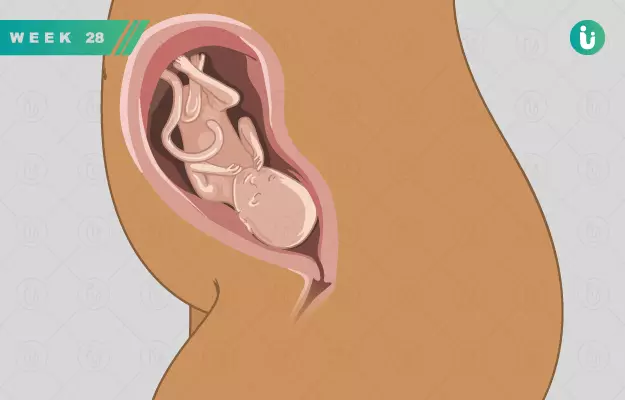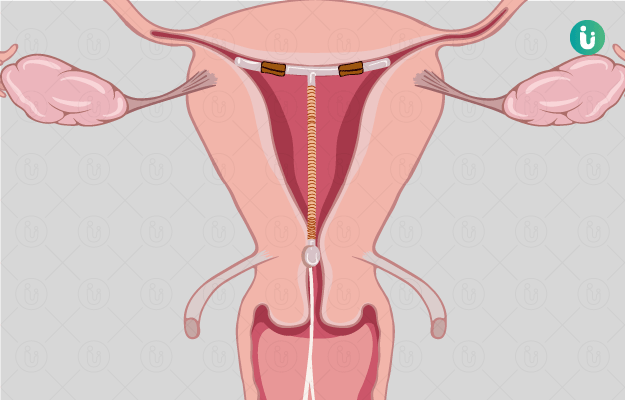Welcome to the third trimester of your pregnancy! You’re entering the last phase of pregnancy this week, and are now a little closer to finally meeting your little bundle of joy. This is also the phase when your nesting instincts will start appearing, so use them to the hilt to get your home ready for your baby.
Though a new trimester has started, you will not need to go in for a foetal ultrasound until the 32nd to 34th weeks. You will, however, need to go in for a check-up to screen your blood pressure, the size of your baby bump, and urine (for infections).
Remember the tests you got done early in your pregnancy? One of those tests was the Coombs test, to check your blood for the presence of Rh factor. If the Rh antibody was not found in your body back then, you will be given Rh immunoglobulin shots this week and again after delivery. These shots will help reduce the risk of diseases like jaundice and anaemia for your baby. (Read more: Rh sensitization during pregnancy)
Your baby is developing quickly now. You’re likely to feel a lot more activity in your womb, especially with your baby doing somersaults and having hiccups too. And while all this is happening, you need to remember that some symptoms of pregnancy are going to get worse from this week onwards. Bloating, water retention, heartburn, gas, being wobbly on your feet and feeling tired are all experiences that will increase in intensity. Here’s everything you need to know about the 28th week of pregnancy.










































